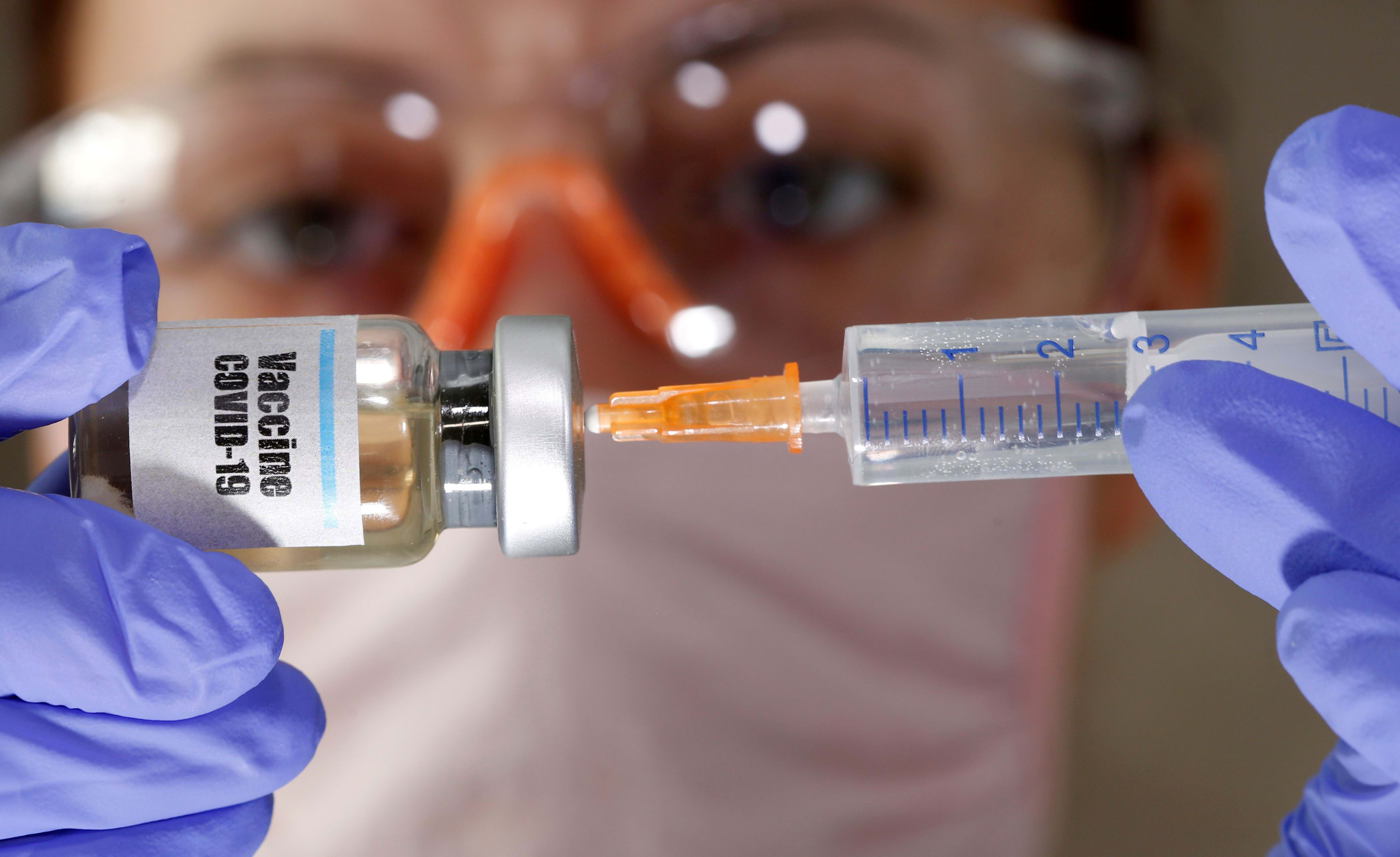BUSINESS NEWS
Scientists call for volunteers to be infected with the coronavirus to test vaccines
A woman holds a small bottle labeled with a “Vaccine COVID-19” sticker and a medical syringe in this illustration taken April 10, 2020.Dado Ruvic | ReutersOver 100 prominent scientists, including 15 Nobel laureates, are calling for healthy volunteers to be exposed to the coronavirus to see whether vaccines against Covid-19 actually work.The scientists signed an open letter to Dr. Francis Collins, the head of the National Institutes of Health (NIH) in the U.S., on Wednesday calling for human “challenge trials” that they say could “greatly accelerate” the development of a Covid-19 vaccine. Challenge trials see healthy volunteers deliberately exposed to a virus, after being given a vaccine, to test whether the vaccine works to prevent infection.Such trials are not without controversy, but organization ‘1 Day Sooner’ and other prominent experts insist the benefit of fast-tracking challenge trials outweigh the risks, and are calling on the U.S. government to authorize them.”If challenge trials can safely and effectively speed the vaccine development process then there is a formidable presumption in favor of their use, which would require a very compelling ethical justification to overcome,” the letter published by 1 Day Sooner, an organization that advocates for challenge trials, states.Scientists that signed the letter, including the director of the University of Oxford’s Covid-19 vaccine program, said “human challenge trials can provide information much faster than conventional efficacy trials, which take months longer.””In such trials, volunteers still receive the vaccine candidate or a control. Instead of resuming life as usual and waiting to ‘catch’ a virus, volunteers are deliberately exposed to the pathogen under controlled conditions. Beyond being faster than conventional trials, a challenge test is likelier to conclude with interpretable results, e.g. should the presence of virus around the study site begin to fade over time,” they added.The signatories of the letter come from a range of disciplines including epidemiology, medicine, economics and philosophy. They argue that “the Covid-19 pandemic must be fought urgently on many fronts, but it is hard to picture robust economic and social recoveries in the absence of a vaccine. We are writing to underscore the vast importance of human challenge trials as a method to help develop vaccines.” The letter notes that U.S. lawmakers are already supporting the move. In April, 35 members of the House of Representatives called on U.S. regulators to consider allowing volunteers to be infected with the coronavirus to speed up vaccine testing. Over a hundred vaccine candidates are already under development around the world and there are 23 candidate vaccines in the clinical evaluation stage, according to the World Health Organization.There appears to be a cautious acceptance that challenge trials could play a part in fast-tracking the development of a coronavirus vaccine. For his part, the NIH’s Director Dr Francis Collins has said challenge trials are “on the table for discussion — not on the table to start designing a plan.”The letter was also signed by more than 2,000 challenge volunteers organized by 1 Day Sooner. Laying out the principles for an “effective” human challenge trial, the experts said “crucial protections must be extended to protect the health and autonomy rights of volunteers.”Guidance from the World Health Organization (WHO) says that human challenge trials are ethical when they meet certain criteria. Protections that should clearly be in place, experts said, including that trial participants are relatively young and in good health and provided with the highest quality medical care with frequent monitoring.The WHO notes that it is essential challenge trials are “conducted within an ethical framework in which truly informed consent is given” and that they should be undertaken with “abundant forethought, caution, and oversight.” Consideration must be given to both potential individual risks and benefits, WHO says, as well as to potential societal benefits and risks, such as the release into the environment of a pathogen that might not otherwise be present.The experts on Thursday said ethical and scientific review of any challenge trials must be of the highest quality and finally, but most importantly, “the autonomy of the volunteers is of paramount concern … This means that the informed consent process must be robust.”
Source link









